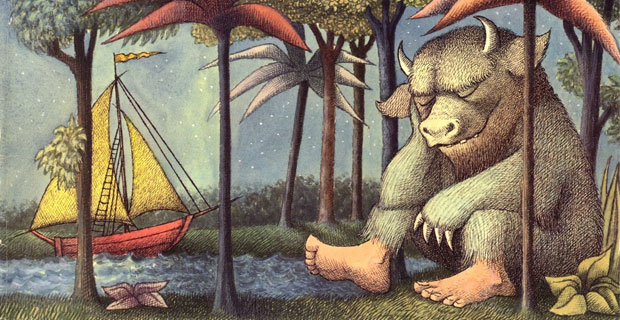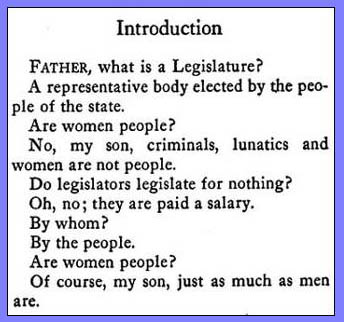Suffrage for South Dakota Children? Should They Vote?
 The word “suffrage” always carries an emotional rush. The warm embrace of freedom and full citizenship. Great that women in South Dakota can now vote (see flag below). But it’s never been clear to me why children can’t vote as well. They are human beings who live among us and were probably born here. So why should they be disenfranchised?
The word “suffrage” always carries an emotional rush. The warm embrace of freedom and full citizenship. Great that women in South Dakota can now vote (see flag below). But it’s never been clear to me why children can’t vote as well. They are human beings who live among us and were probably born here. So why should they be disenfranchised?
I’m simply asking the question, not necessarily pursuing advocacy. The more civic issues are discussed, even hypothetically, the more vibrant our democracy becomes.
Can anyone explain why children shouldn’t be allowed to vote? The only qualifications ever mentioned seem to involve arbitrary legislative rules that politicians have concocted. But the same could have been said about Women’s Suffrage. The arbitrary gender limitation has been erased. So why not get rid of the age restriction as well. Is there any difference?
Children actually seem better educated and smarter than many of the voters today. Many go off to combat or study at universities without being allowed to vote. Can you argue that their vote is more open to manipulation than what we’re seeing with adults, many of whom seem to be swapping votes for welfare candy?
 Perhaps a test might seem appropriate to see if children are mature enough to vote–or have a minimal awareness of issues? How about the civics questions that are now applied to those seeking US citizenship. NO to all such requirements most people would argue.
Perhaps a test might seem appropriate to see if children are mature enough to vote–or have a minimal awareness of issues? How about the civics questions that are now applied to those seeking US citizenship. NO to all such requirements most people would argue.
There are, of course, proponents for children’s suffrage. Demographer Paul Demeny, back in the 1980s, argued, according to Wikipedia, for “providing a political voice for children by allowing parents or guardians to vote on their behalf.” No age restriction.
Further, “Under a Demeny voting system, each parent would cast a proxy vote, worth half a vote, for each of their dependent children, thus allowing for a split vote if the parents’ political views differ. Once children reach the minimum voting age, their parents would no longer vote on their behalf.”
 But age is still involved, not qualifications as such. Bigger families get more votes, a bit like how population influences congressional apportioning. Where should lines be drawn? Even so, can’t some of the sentiment that rallied the women’s suffrage movement be transferred to children? The same Wikipedia article invites us to think about the broader human context of voting:
But age is still involved, not qualifications as such. Bigger families get more votes, a bit like how population influences congressional apportioning. Where should lines be drawn? Even so, can’t some of the sentiment that rallied the women’s suffrage movement be transferred to children? The same Wikipedia article invites us to think about the broader human context of voting:
Demeny argued that children “should not be left disenfranchised for some 18 years: let custodial parents exercise the children’s voting rights until they come of age”. Demeny’s motivation behind proposing such a system was to “make the political system more responsive to the young generation’s interests” and was part of a broader set of policy proposals aimed at combating the low fertility rate in certain countries.
 The word “suffrage” always carries an emotional rush. The warm embrace of freedom and full citizenship. Great that women in South Dakota can now vote (see flag below). But it’s never been clear to me why children can’t vote as well. They are human beings who live among us and were probably born here. So why should they be disenfranchised?
The word “suffrage” always carries an emotional rush. The warm embrace of freedom and full citizenship. Great that women in South Dakota can now vote (see flag below). But it’s never been clear to me why children can’t vote as well. They are human beings who live among us and were probably born here. So why should they be disenfranchised? Perhaps a test might seem appropriate to see if children are mature enough to vote–or have a minimal awareness of issues? How about the civics questions that are now applied to those seeking US citizenship. NO to all such requirements most people would argue.
Perhaps a test might seem appropriate to see if children are mature enough to vote–or have a minimal awareness of issues? How about the civics questions that are now applied to those seeking US citizenship. NO to all such requirements most people would argue. But age is still involved, not qualifications as such. Bigger families get more votes, a bit like how population influences congressional apportioning. Where should lines be drawn? Even so, can’t some of the sentiment that rallied the women’s suffrage movement be transferred to children? The same Wikipedia article invites us to think about the broader human context of voting:
But age is still involved, not qualifications as such. Bigger families get more votes, a bit like how population influences congressional apportioning. Where should lines be drawn? Even so, can’t some of the sentiment that rallied the women’s suffrage movement be transferred to children? The same Wikipedia article invites us to think about the broader human context of voting: